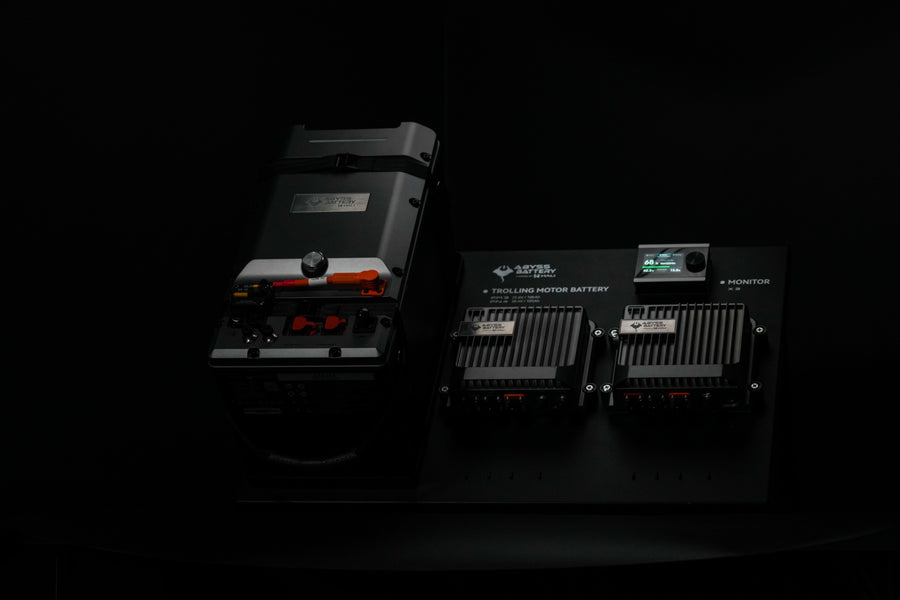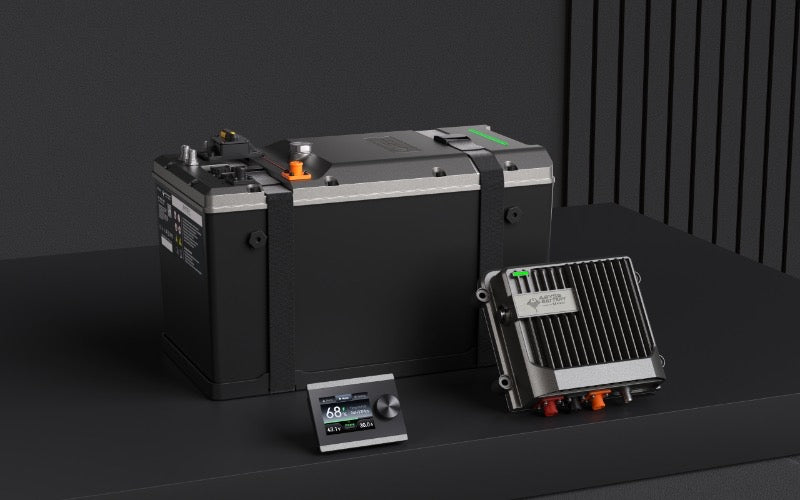How Many Amps Should Your Boat Battery Have?

Marine batteries are specially designed to recharge quickly and have enough electrical power to operate the motor. Your marine battery needs the amperage to get enough current to start the boat and get up to speed. But how many amps should your boat battery have? Well, that depends on a few things.
Type of Battery
Boat owners have a few different types of cells to choose from when purchasing a marine battery. Other than traditional lead-acid designs, there are also flooded wet cells, gel cells, AGM, and lithium. Each battery has its strengths, but you should consider the amperage before deciding which to use.
Gel cell and AGM batteries have higher storage capacities than traditional lead-acid, making them an excellent choice for boaters. No matter your choice, you’ll want around five amps per storage bank so you aren’t stranded on the water.
Amp Rating
Consider the amp rating of your marine battery so you don’t damage it during operation or charging cycles. The required amperage will depend on your engine size and its requirements. You also need to account for any accessories that you have on board.
A good rule of thumb when calculating your required amp rating is to add up the number of amps your boat needs and multiply that by the number of hours you expect it to be running. Most marine batteries have a range between four and six hours before they need to be charged.
Its Purpose
Most boat owners keep two batteries on board, one for starting the motor and another for deep cycling. While the starter battery needs enough amperage to crank the engine, the deep cycle battery needs to be able to run multiple appliances for long periods.
A starter battery needs an amp rating between 75 and 400 for just a few seconds to get the engine going but doesn’t require a high storage capacity. A marine battery needs only about 80 amps but should have the capacity to run for long periods. A traditional 12v dual-purpose marine battery can do both, making it convenient for those with limited space.
Your Boat’s Power
It’s vital to get the correct amperage for your boat’s needs. Otherwise, you could put yourself or others in danger. The battery could get hot, damage your equipment, or even explode if there isn’t enough supply.
Knowing how many amps your boat battery should have is essential for those who want to enjoy their day to its fullest.




This article needs a re-write to make it useful. In small craft, there are typically two types of marine battery installation: a single battery for both starting and for “house” loads (electronics, navigation lights, etc), or a dual battery installation in which one battery is reserved for starting while the second battery is relegated to “house” loads. For a single battery installation, a dual purpose marine battery is the ticket. For a dual battery installation, the general rule of thumb for a starter battery is “5 amps per horsepower” referring to the CCA (cold cranking amps) or MCA (marine cranking amps) rating of the battery. For house loads, a deep cycle battery is the ticket. The ampere capacity rating (as opposed to the CCA or MCA rating) indicates the duration that the battery would be able to service house loads in hours (e.g. an ideal 101 amp-hour battery would power a 5 amp load for 20 hours without charging). Battery type and construction is a whole other discussion. Do your homework—don’t rely on this article (or what I recanted from memory!) alone.
Thanks for pointing out that the size of your boat’s engine and its requirements will determine the amp rating that your marine battery should have. My father is planning to install new batteries for his boat before his birthday on the 28th. I will ask him to follow your tips to help him choose the right type of boat batteries. http://americanbatterycorporationca.net/batteries#RVMarine
Leave a comment